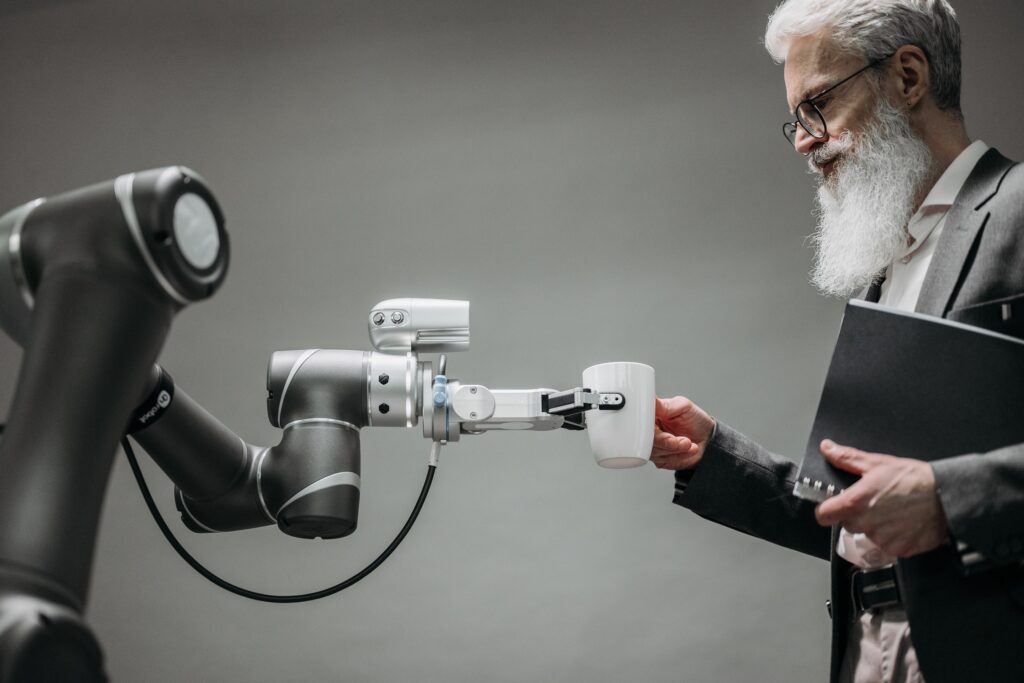Work, in its various forms, is an integral part of our lives. It not only provides us with financial stability but also shapes our identities, gives us a sense of purpose, and allows us to contribute to society.
However, in recent times, there seems to be a growing trend of people expressing dissatisfaction with traditional employment and questioning the very notion of work itself. This raises the question: Why don’t people want to work these days?
Definition of Work and Its Significance in Society
Work can be defined as the physical or mental effort exerted to achieve a purpose or produce something of value. It encompasses a wide range of activities – from manual labor and creative pursuits to managerial tasks and intellectual endeavors. Throughout history, work has played a crucial role in shaping civilizations and driving progress.
In society, work serves multiple functions beyond just earning an income. It provides individuals with structure and routine, helping them develop skills and expertise in their respective fields.
Work also fosters social interactions by bringing people together in collaborative environments where they can form relationships and build networks. The significance of work goes beyond individual well-being; it also contributes to the overall functioning of communities and nations.
Economically speaking, work generates wealth by producing goods and services that meet societal needs. Moreover, it supports government infrastructure through tax revenues that fund public services such as healthcare, education, transportation, and more.
So, whether we like it or not, our society is dependent on people showing up for work. This fact only makes it more interesting to dive into the reasons why people don’t want to work.
Why Don’t People Want to Work? The Landscape is Changing
The current landscape is witnessing a shift in attitudes towards work for various reasons. One major factor is the lack of job satisfaction experienced by many individuals today.
Traditional employment often comes with mundane tasks that offer little personal fulfillment or room for growth. Consequently, many find themselves yearning for something more meaningful than simply going through the motions day in and day out.
Financial considerations also play a significant role in people’s reluctance to work. Low wages, coupled with the rising cost of living, can create a sense of futility where individuals feel that their efforts are not adequately rewarded.
This can lead to disengagement from traditional employment and a quest for alternative sources of income or lifestyles that prioritize personal fulfillment over financial gain. Furthermore, generational differences in work ethic contribute to the changing perceptions of work.
Each generation brings its unique values and aspirations, shaped by societal changes and technological advancements. The younger generations, such as Millennials and Gen Z, often prioritize flexibility, autonomy, and work-life balance over conventional notions of “climbing the corporate ladder.” This shift challenges the traditional structures of work and influences how individuals perceive and approach employment.
Lack of Job Satisfaction Leads to People Not Wanting to Work
Today, a lot of people demand more from their workplace. It is no longer just a basic transaction of skills and effort for money and safety. It needs to be more, and employees – in many cases – need to feel some sort of satisfaction from their work.
The Importance of Finding Meaningful and Fulfilling Work
In today’s fast-paced and demanding world, the significance of finding meaningful and fulfilling work cannot be overstated. Gone are the days when people exclusively pursued careers for financial stability alone. Instead, individuals are increasingly seeking job satisfaction, which goes beyond monetary compensation.
When we engage in work that aligns with our values, passions, and interests, it brings a sense of purpose to our lives. Whether it’s the feeling of making a positive impact on society or using our skills to contribute meaningfully to a specific field, finding such fulfillment elevates our overall well-being.
If this is missing, we simply do not want to work at that specific job anymore. At least that is true for many people.
Factors Contributing to Job Dissatisfaction
Unfortunately, many individuals find themselves trapped in jobs that fail to provide them with a sense of fulfillment or joy. Several factors contribute to this dissatisfaction.
- Monotony is one such aspect that can drain enthusiasm from any job. Repeating the same tasks day after day without any variation can lead to boredom and disengagement.
- Additionally, the lack of growth opportunities can significantly impact job satisfaction. When employees feel stagnant in their positions with little room for advancement or skill development, they may lose motivation and become demoralized. This is especially true with the discrimination of remote employees.
- Another crucial factor is poor work-life balance. In today’s hyper-connected world where boundaries between personal and professional life have blurred, maintaining a healthy balance becomes increasingly difficult.
- Long working hours coupled with minimal time for personal pursuits can negatively affect one’s mental health and overall satisfaction with their job. It is important for employers to recognize these factors contributing to job dissatisfaction in order to create an environment that fosters greater fulfillment at work.
By addressing issues related to monotony through task rotation or offering training programs for skill enhancement and promotional opportunities, organizations can actively contribute towards enhancing employee satisfaction levels. Moreover, implementing flexible working arrangements or promoting initiatives focused on work-life balance can create a more supportive and fulfilling work environment for employees.
Our happiness and fulfillment at work are crucial aspects of our overall well-being. Finding meaningful and fulfilling work can have a profound impact on our lives, offering a sense of purpose and satisfaction.
However, factors such as job monotony, lack of growth opportunities, and poor work-life balance can hinder job satisfaction. Employers play a vital role in addressing these issues to create an environment that nurtures employee happiness and promotes professional growth.

Financial Considerations and Reasons Why People Don’t Want to Work
The impact of low wages on motivation to work
Money makes the world go round, they say. And it’s true that financial considerations play a significant role in people’s motivations to work.
One of the primary factors that can demotivate individuals is low wages. When hard work fails to translate into a decent income, it’s only natural for one’s motivation to dwindle.
Imagine pouring your heart and soul into your job, only to receive a paycheck that barely covers your basic needs. It can be disheartening and discouraging.
When there is little incentive for financial growth or stability, it becomes harder to find the drive to invest time and effort in one’s employment. Moreover, low wages not only affect an individual’s present circumstances but also have long-term consequences.
Saving for the future becomes exceedingly difficult, which leads to feelings of insecurity and uncertainty about one’s financial well-being down the line. The lack of financial rewards can also hinder personal growth and limit opportunities for self-improvement or investment in education or skills development.
The Rising Cost of Living and Its Effect on Job Preferences
In recent years, the cost of living has been steadily soaring while wages have seemingly remained stagnant. This contrast creates a disheartening imbalance that further contributes to people’s reluctance or dissatisfaction with work. As expenses rise across various aspects of life—housing, healthcare, education—people find themselves struggling more than ever simply to make ends meet.
This situation prompts individuals to reevaluate their priorities when it comes to job preferences. With increasing financial burdens, many may prioritize finding higher-paying positions over pursuing careers they are genuinely passionate about or ones that align with their skills and interests.
The need for stability and security often outweighs other factors like personal fulfillment or job satisfaction. Furthermore, as costs rise disproportionately across different regions or cities, some individuals may even consider relocating to areas with a lower cost of living.
This can lead to a shift in job preferences, as financial feasibility becomes a primary factor in decision-making. Ultimately, the rising cost of living forces individuals to prioritize their economic needs above all else, potentially sacrificing other aspects of their professional lives.
Financial considerations have a profound impact on people’s motivations towards work. Low wages can severely demotivate individuals, hindering personal growth and financial stability.
Additionally, the rising cost of living places immense pressure on individuals’ job preferences, often leading them to prioritize higher-paying positions over personal fulfillment. It is essential for society and employers alike to recognize the significance of fair compensation and considerate benefits in order to foster a motivated and engaged workforce.
Generational Differences in Work Ethic of different generations (Baby Boomers, Gen X, Millennials, Gen Z)
When it comes to work ethic, each generation carries its own set of values and beliefs that shape their attitudes toward employment. Let’s start with the Baby Boomers, those born between 1946 and 1964.
- This generation og Baby Boomers grew up in an era of economic prosperity and believed in hard work as a means to achieve success. They often prioritize stability, and loyalty to their employers, and are known for their strong work ethic.
- Moving on to Generation X, typically born between 1965 and 1980, they witnessed the rise of technology and experienced economic fluctuations. As a result, they tend to value independence, adaptability, and work-life balance. Generation Xers are known for their ability to juggle multiple responsibilities while seeking personal fulfillment.
- Now let’s shed some light on Millennials (born between 1981 and 1996). This digital-native generation witnessed rapid advancements in technology that have shaped their perspective on work. They value flexibility and purpose-driven careers over traditional corporate structures. Millennials emphasize personal growth opportunities, and meaningful connections at work, and often seek a healthy integration between work and personal life.
- We have Generation Z (born from the mid-1990s onwards). Growing up in a highly connected world dominated by social media platforms and instant communication tools has greatly influenced their approach to work. Gen Z tends to prioritize individuality, diversity in the workplace, social impact initiatives within organizations they join or create themselves.
So, as you can probably tell, different generations make different demands on their employers. While employers may cater to some generations’ demands, they may not be able to cater to others. This simple fact can lead to people not wanting to work at that specific company anymore.
How Societal Changes and Technological Advancements Influence Attitudes Towards Work
Societal changes have played a significant role in shaping people’s attitudes towards work across generations. In the past few decades alone we have seen shifts in gender roles within families with more women pursuing careers alongside men. This has led to increased expectations for work-life balance and a desire for flexibility among both genders.
Technological advancements have also had a profound impact on attitudes towards work. With the rise of automation, artificial intelligence, and remote work opportunities, individuals from different generations have witnessed significant changes in the nature of jobs available.
While some fear job insecurity due to automation, others embrace the freedom offered by remote work options. The digital age has transformed our world into a global village, allowing people to connect and collaborate across borders effortlessly.
This connectivity has opened doors for new career possibilities and encouraged individuals to seek unconventional paths. Whether it’s starting an online business or pursuing freelance opportunities globally, technology has expanded the horizons of what is considered “work” and shaped attitudes accordingly.
Generational differences in work ethic are influenced by various factors such as upbringing, societal changes, and technological advancements. Understanding these differences helps foster better collaboration and communication in diverse workplaces.
Additionally, recognizing how societal shifts and technology impact attitudes toward work can inspire organizations to adapt their structures to cater to changing needs and preferences. Ultimately, acknowledging these nuances helps create more inclusive environments where individuals from different generations can thrive together in pursuit of their professional goals.
Alternative Lifestyle Choices Influence That People Don’t Want to Work in Specific Situations
Rise in the popularity of freelancing and remote work options
Gone are the days when traditional 9-to-5 jobs were the only viable option for earning a living.
With the advent of modern technology, the rise in popularity of freelancing and remote work has opened up a whole new world of possibilities. People are increasingly drawn to the idea of breaking free from the confines of conventional employment and embracing a more flexible lifestyle.
Freelancing offers individuals the freedom to choose their projects, clients, and working hours. It allows for greater control over one’s career trajectory and fosters a sense of autonomy.
Whether it’s graphic design, content writing, or web development, freelancers have numerous opportunities to showcase their skills in a competitive market. The ability to work remotely further amplifies this trend, enabling professionals to ditch office cubicles in favor of creating their own ideal work environment.
Pursuing passion projects or entrepreneurial ventures instead of traditional employment
In today’s world, many individuals are seeking more than just financial stability from their work.
They yearn for fulfillment by pursuing passion projects or embarking on entrepreneurial ventures that align with their values and aspirations. These brave souls dare to challenge conventional norms by prioritizing personal growth over monetary gain.
Passion projects allow individuals to invest time and energy into something they truly love without feeling constrained by corporate obligations. Whether it’s starting a podcast, writing books, or launching an eco-friendly fashion line, people are discovering innovative ways to turn their passions into profitable enterprises.
This shift towards self-expression through work not only enhances personal satisfaction but also contributes to society by bringing unique ideas and products into existence. Entrepreneurial ventures represent another enticing alternative for those dissatisfied with traditional employment structures.
By venturing into the world of startups or small businesses, individuals can shape their own destinies and create opportunities for themselves and others. The road may be challenging, but the prospect of building something from scratch and leaving a lasting impact on the world is undoubtedly alluring.
The rise in alternative lifestyle choices such as freelancing and pursuing passion projects or entrepreneurial ventures is indicative of a changing perspective on work. People are no longer content with simply punching the clock; they crave meaning and personal fulfillment.
This shift in mindset prompts individuals to explore unconventional paths that offer freedom, flexibility, and creative expression. By embracing these alternative options, people are rewriting the script of what it means to be successful in today’s ever-evolving professional landscape.
Psychological Factors Explaining Why People Don’t Want to Work
Impact of burnout, stress, and mental health issues on motivation to work
In today’s fast-paced and demanding world, it’s no surprise that burnout, stress, and mental health issues can greatly impact an individual’s motivation to work. Burnout refers to a state of chronic exhaustion caused by prolonged exposure to stressful situations or excessive workload.
When someone experiences burnout, they may feel physically and emotionally drained, leading to a significant decrease in their desire to engage in work-related activities. Stress is another psychological factor that can dampen one’s motivation to work.
Whether it stems from heavy workloads, tight deadlines, or challenging interpersonal relationships at the workplace, excessive stress can take a toll on an individual’s mental and emotional well-being. When stress becomes overwhelming, it can hinder productivity and diminish enthusiasm for work.
Mental health issues such as anxiety and depression can also play a substantial role in diminishing motivation towards work. These conditions affect individuals differently but often lead to feelings of sadness, hopelessness, or constant worry.
Coping with the symptoms of mental health disorders while trying to perform at one’s best in the workplace can be incredibly challenging. As a result, individuals may find it difficult to muster the energy or interest needed for their job.
The Importance of a Healthy Work-Life Balance for Overall Well-Being
Maintaining a healthy work-life balance is crucial for overall well-being and plays a pivotal role in sustaining motivation towards work. In today’s hyperconnected world where technology enables constant communication and availability around the clock, finding that balance has become increasingly challenging.
When individuals consistently prioritize their professional lives over personal time and leisure activities, they risk experiencing physical fatigue as well as emotional burnout. This imbalance not only impacts their productivity during working hours but also affects their quality of life outside of work.
A healthy work-life balance allows individuals to recharge, rejuvenate, and engage in activities that promote their well-being. It creates space for personal interests, hobbies, and time spent with loved ones.
When people have a fulfilling life outside of work, they tend to approach their professional responsibilities with renewed energy and enthusiasm. To maintain a healthy work-life balance, individuals must set clear boundaries between work and personal life.
This involves prioritizing self-care activities such as exercise, relaxation techniques, and spending quality time with family and friends. Employers also play a crucial role in fostering a healthy work-life balance by encouraging flexible working arrangements, promoting wellness programs, and supporting employees’ mental health needs.
Psychological factors such as burnout, stress, and mental health issues significantly impact an individual’s motivation to work. These factors can lead to exhaustion and diminish the desire to engage in work-related activities.
Additionally, maintaining a healthy work-life balance is vital for overall well-being as it allows individuals to recharge and prioritize personal interests outside of their professional responsibilities. By addressing these psychological factors and ensuring a balanced lifestyle, individuals can regain motivation toward work while safeguarding their mental health.

Technological Advancements Influencing Our Willingness to Work
The Rise of Automation: Redefining the Job Market
Technological advancements have revolutionized the way we work, and automation is at the forefront of this transformation. As artificial intelligence and robots become more sophisticated, many jobs that were once performed by humans are now being taken over by machines. This shift has a profound impact on the job market, as it alters the demand for certain skills and eliminates the need for certain occupations altogether.
The automation wave affects various industries, from manufacturing to customer service. Robots can now assemble products more efficiently than humans, while chatbots handle customer inquiries with impressive accuracy.
This leaves aspiring job seekers puzzled about their place in this changing landscape. The fear of being replaced by technology looms large, creating a sense of uncertainty among workers.
Fear or Uncertainty about Future Job Security
One of the consequences of rapid technological advancements is the growing fear or uncertainty surrounding job security. With automation making its way into numerous industries, individuals are concerned that their skills may become obsolete in the near future. Workers who have spent years mastering a particular trade or profession suddenly find themselves questioning whether their expertise will still be relevant in an automated world.
This fear often stems from witnessing colleagues or friends losing their jobs to machines or witnessing entire industries being disrupted due to technological progress. People worry not only about losing their source of income but also about finding alternative employment opportunities that match their skills.
Furthermore, technology-driven changes can be unpredictable, adding another layer of apprehension regarding future job security. It becomes increasingly challenging to plan for career longevity when new technologies emerge rapidly and disrupt established norms overnight.
Adapting to Change: Embracing New Opportunities
While there is genuine concern about automation’s impact on jobs, it’s essential to approach this change with a proactive mindset rather than succumbing to fear. History has repeatedly shown that technological advancements create new opportunities and avenues for growth. The key lies in adaptability and acquiring new skills that are complementary to emerging technologies.
By staying informed about the current trends, individuals can identify areas where their expertise can be applied or enhanced alongside automation, rather than opposing it. This may involve upskilling or reskilling to remain relevant in an evolving job market.
Moreover, as certain manual or repetitive tasks become automated, individuals have the opportunity to explore more complex and creative roles that require human ingenuity and problem-solving skills. Focusing on areas that machines cannot replicate—such as empathy, critical thinking, and creativity—can provide a competitive edge in a world increasingly driven by technology.
Redefining Work: Embracing Collaboration with Automation
Instead of perceiving automation as a threat to job security, it’s crucial to recognize its potential for collaboration. Humans and machines working together can achieve remarkable outcomes that neither can accomplish alone.
As technology takes over routine tasks, workers have the chance to engage in higher-level activities where their cognitive abilities excel. This cooperation between humans and technology opens doors for innovation and efficiency gains across industries.
The goal should be to leverage automation as a tool rather than dreading its presence. By embracing this collaborative mindset, workers can focus on leveraging their unique abilities while allowing technology to handle mundane or repetitive aspects of their work.
Technological advancements have undoubtedly disrupted the job market and instilled fear or uncertainty about future job security among many individuals. However, by shifting perspective from resistance to adaptation, people can discover new opportunities for personal growth and productive collaboration with automation.
Acquiring new skills aligned with emerging technologies will be integral in navigating this dynamic landscape successfully. Ultimately, striking a balance between embracing automation’s benefits while preserving human ingenuity is key to thriving in this technologically driven era of work.
Conclusion: Why People Don’t Want to Work Explained
Throughout this article, we have explored the intriguing question of why some people seem to lack the desire to work. We delved into various factors that contribute to this phenomenon, including job dissatisfaction, financial considerations, generational differences in work ethic, alternative lifestyle choices, psychological factors, technological advancements, and cultural influences.
It is evident that the motivation to work is a complex issue influenced by multiple interconnected elements. We examined how job satisfaction plays a crucial role in people’s desire to work.
Factors such as monotony, lack of growth opportunities, and poor work-life balance can heavily impact an individual’s enthusiasm for their job. The financial aspect cannot be overlooked either; low wages and rising living costs make it challenging for some individuals to find motivation when financial stability seems elusive.
Furthermore, we explored how generational differences shape attitudes towards work. Understanding the mindset and values of different generations can shed light on why some individuals prioritize alternative lifestyle choices or pursue passion projects over traditional employment.
The influence of psychological factors on one’s motivation cannot be underestimated either. Burnout, stress levels, and mental health issues can significantly dampen one’s desire to engage in meaningful work.
We also considered technological advancements and their impact on the job market. With automation becoming more prevalent in various industries, fear or uncertainty about future job security might lead some individuals to question their commitment to traditional employment.
My name is Frederik
I am a passionate marketeer who loves the freedom that comes with working from home whenever I choose to do so.
I love getting nerdy with every single detail about making everything related to my home just a tiny bit better.
That is what motivates me to write about home stuff on this blog.


